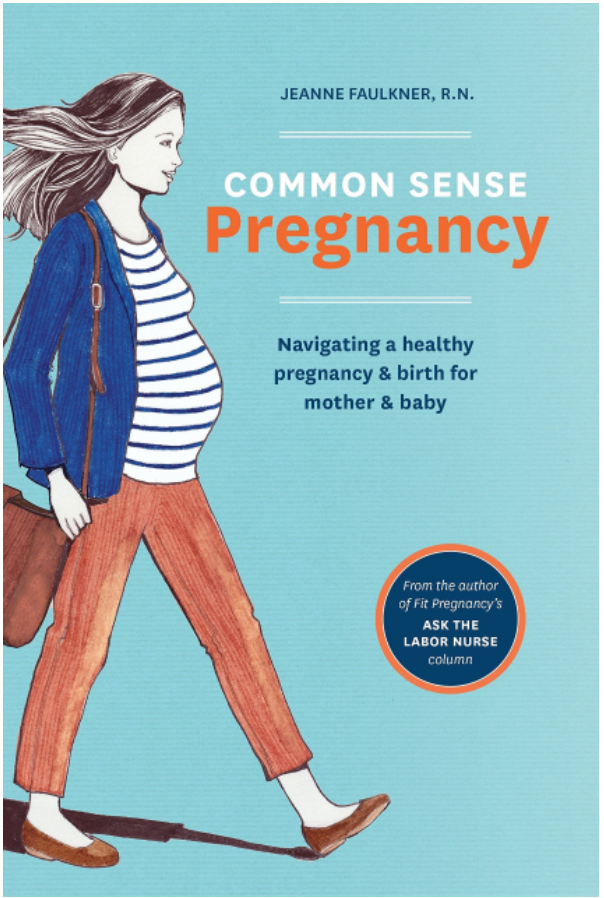Sleep Deprivation- How to Keep From Losing Your Mind
Guest post by Jeanne Faulkner, Registered Nurse and author of the book “Common Sense Pregnancy” In this blog, Sleep Deprivation- How to Keep From Losing Your Mind Jeanne shares wisdom for new parents.
I just launched my new book, Common Sense Pregnancy ((Random House/Ten Speed Press, June 2015)) and Let Mommy Sleep is helping spread the word that it’s time to start new conversations about pregnancy and parenthood. I wrote Common Sense Pregnancy because women are desperate for honest, straightforward, reassuring information that helps them navigate increasingly complicated prenatal care, labor and birth practices.
They’re looking for support as they learn to parent in challenging times. Much of what’s on book shelves now makes women feel like pregnancy is high risk and dangerous when in truth, for most women it’s a normal and healthy experience. The truth is most parents (even the quirkiest among us) do a darn, good job raising their children. That’s why we need new books, fresh conversations and most of all, reassurance that everything’s going to be OK.

Common Sense Pregnancy is part medical guide (I’m a registered nurse with decades of maternal health experience), part advice column (I write Fit Pregnancy’s Ask The Labor Nurse blog and I’m Senior Writer for EveryMotherCounts.org), and part memoir (I’m the mother of four and lived to write about it). Most of my book is about pregnancy, prenatal care, labor and birth, but I also discuss issues that are right up Let Mommy Sleep’s alley – breastfeeding, postpartum care, newborn issues and a topic that’s at the top of almost every expectant parent’s worry list – sleep deprivation. I write about it in Chapter 15 and I’ll share an excerpt here:
Sleep Deprivation- How to Keep From Losing Your Mind
You’re in for a bit of a shock. Babies rule the night. They’re totally clueless about circadian rhythms and not the least bit concerned about waking you up at all hours to make you do things for them. This goes on for months and months – sometimes even years. Everyone will tell you: Sleep when the baby sleeps. That’s excellent advice the first week or so but not so great after that, because few of us have the privilege of putting everything in life on hold while we take a nap.
We each react differently to interrupted and reduced sleep. Some can suck it up and function fairly well: others fall apart completely. They can’t think, can’t deal and can’t function at all. These parents have to create coping strategies to keep from losing their minds.
First, consider this: while it may seem like you’re never getting to sleep, the reality is you’re almost certainly getting some. Even if your baby is an every-two-hour feeder, that gorgeous hour and a half between feedings might drop you into the deepest sleep of your life. The body is amazing in its ability to grab what it needs, and once you get into a nighttime groove, you’ll find the experience of having bizarre wake-sleep cycles less jolting.
This isn’t working…
If the fatigue is too extreme, then you and your partner need to make some changes – like alternating nights where one of you gets to sleep all night in a room away from the baby while the other handles night duties. If you’re breastfeeding, this could involve your partner giving the baby a bottle of pumped milk or having dad bring baby in for a quick nighttime feeding, then scooping her back up and away while you go back to sleep.
Even when I’d been a nightshift nurse for quite some time, I found newborn sleep deprivation to be a special kind of awful. I didn’t really mind nursing the baby in the middle of the night. In fact, I found it mighty cozy. It was the getting out of bed to get the crying baby that I just plain hated. So my husband and I would share the load. He’d get up and get the baby, do a diaper change, and tuck the baby in bed next to me. After she nursed, my husband would take the baby back to her bassinet. Neither one of us was gaining any extra sleep that way, but this system worked for us.
What about Mental Health?
For some women, sleep deprivation leads to serious changes in mental health – aka postpartum depression and even psychosis. This is serious business and must be addressed by professionals – your doctor or midwife plus a psychologist, psychiatrist, or other mental health professional with experience dealing with postpartum mothers.
I had a touch of this with baby number one. I couldn’t fall sleep for days after having my daughter and was on high alert and pulsing with hormones, and my mind just would not let up. I’d doze a bit here and there but never really dropped off. One day, I was sitting in the rocker with my baby in my arms. She was asleep and I was exhausted. Suddenly, white horses were flying in her window. Whatever was left of my logical mind knew for certain this wasn’t real, but all my other senses said, “My oh my, that sure is a lot of flying horses. I wonder what happens when they land.” That was my only real break from reality, and shortly after the horses arrived, I was finally able to fall asleep.
This chapter offers lots of advice about sleep and the rest of the book covers all the information you need as you launch your life into parenthood. Bottom line? It’s going to be OK.
Categories
- Corporate Care & Partners
- COVID19 Archive
- En Espanol
- Expert Guides
- Hiring a Night Nanny
- Infant Safety
- Infant Sleep Hub
- Newborn Care
- Postpartum Health
- Twins & Multiples
- Work as a Night Doula
- zPost Archives
